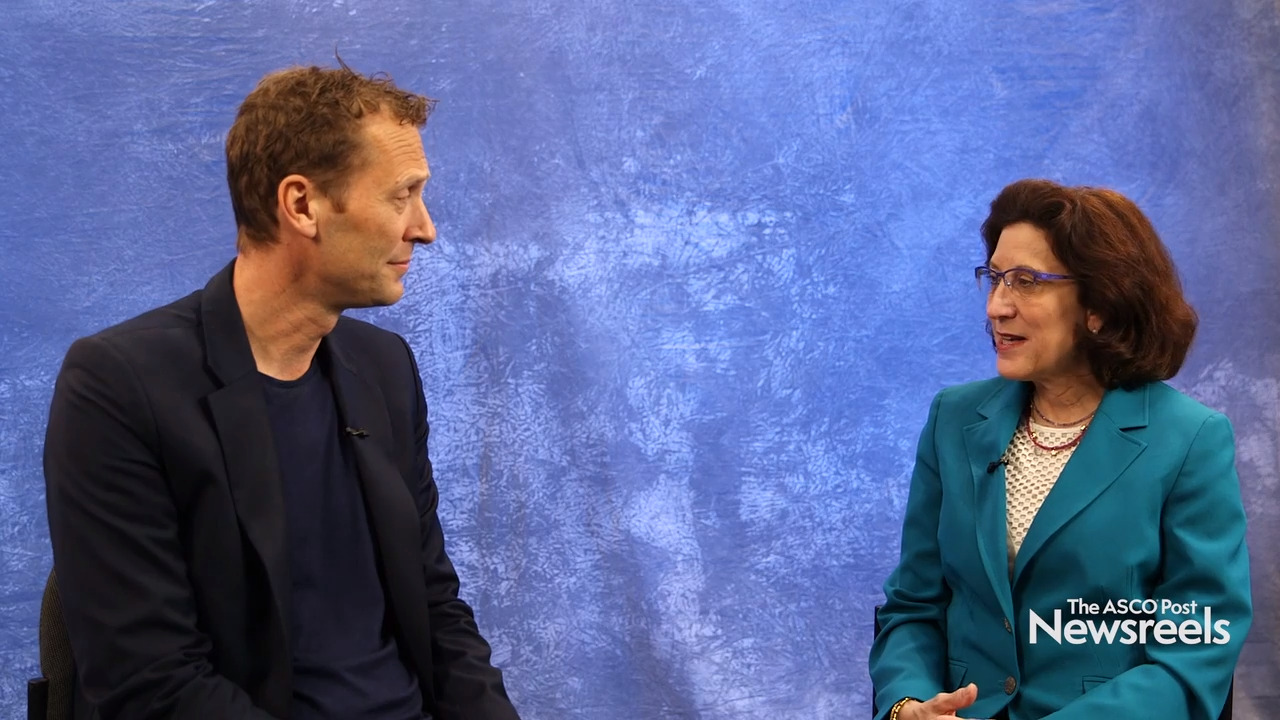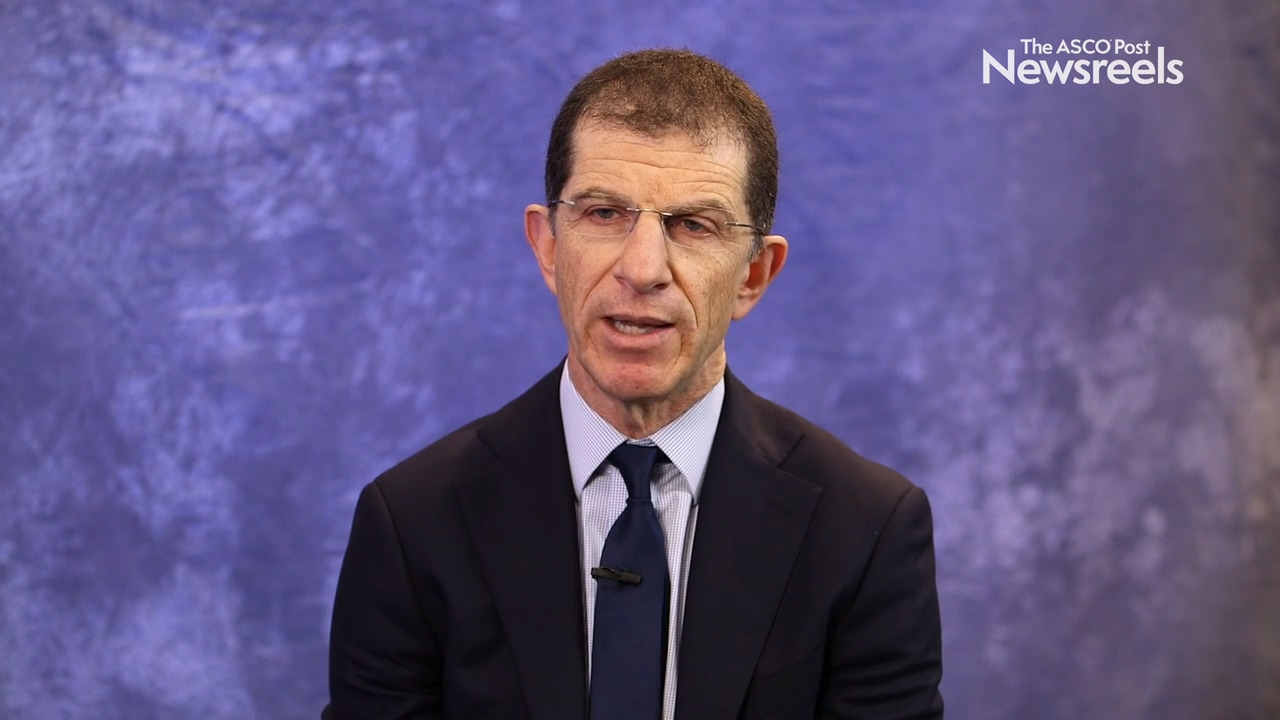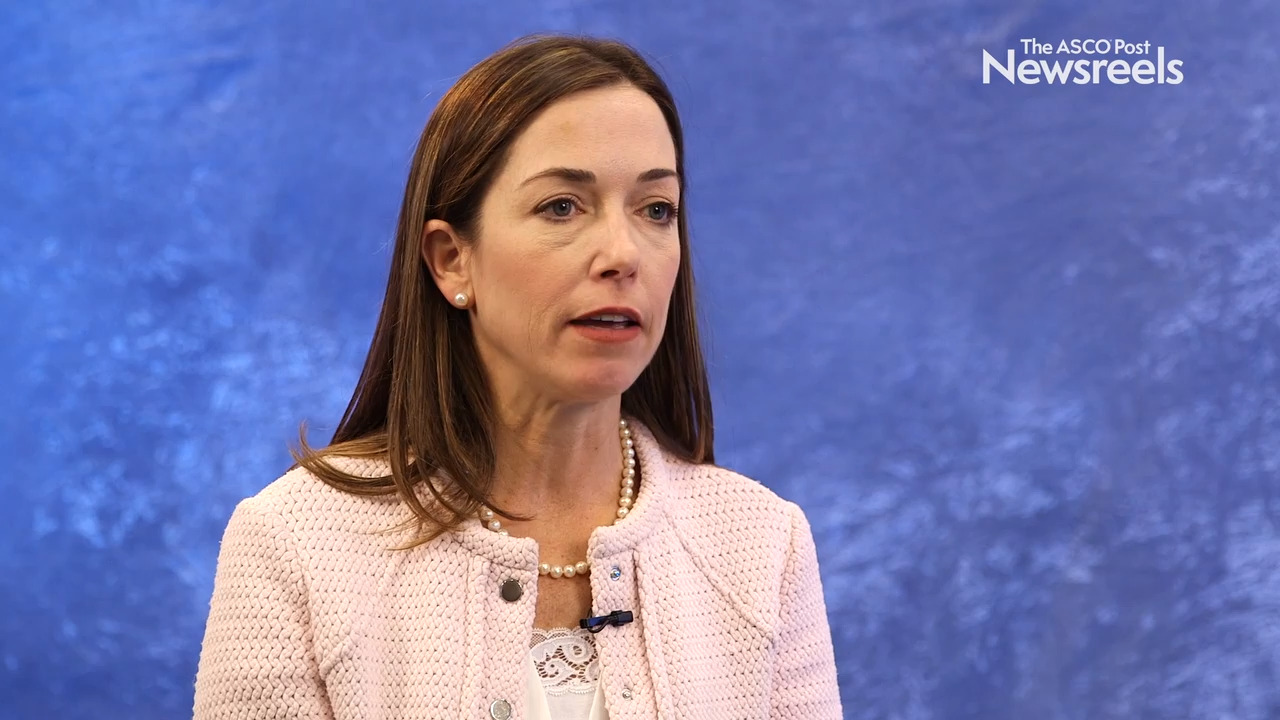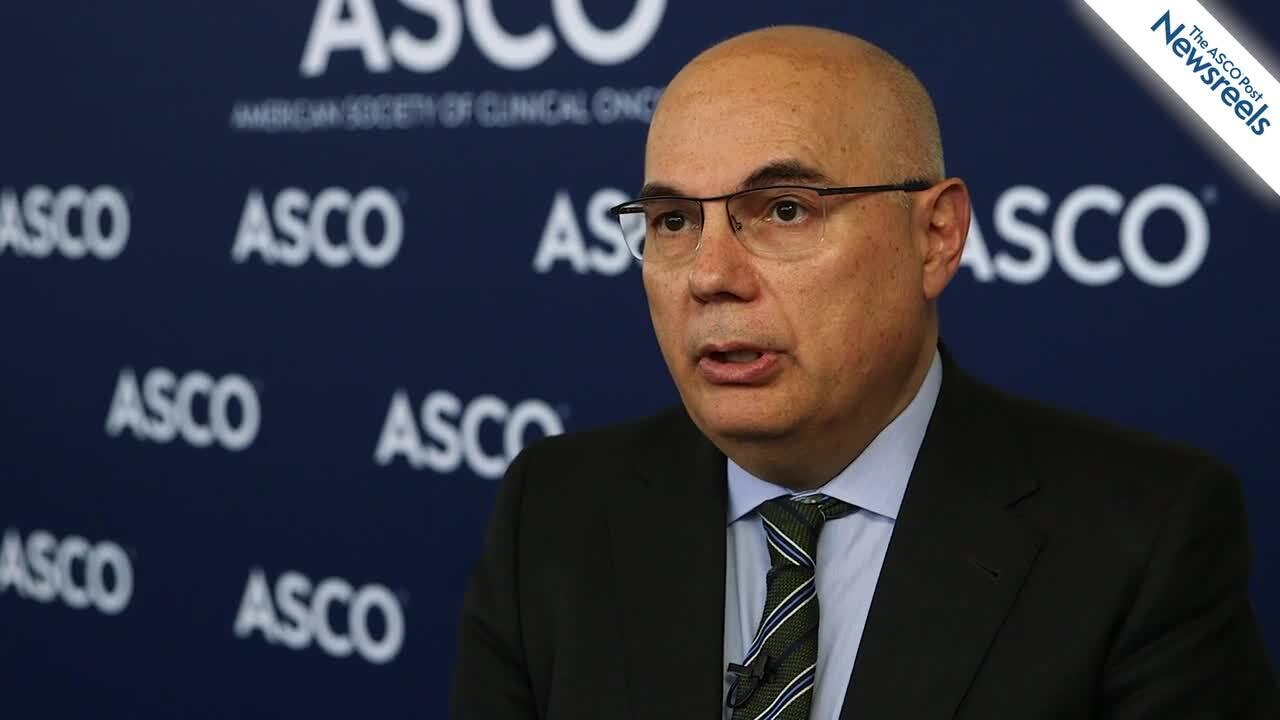Alok A. Khorana, MD, and Hedy L. Kindler, MD, on Metastatic Pancreatic Cancer: POLO Trial on Olaparib as Maintenance Therapy
2019 ASCO Annual Meeting
Alok A. Khorana, MD, of the Cleveland Clinic, and Hedy L. Kindler, MD, of The University of Chicago, discuss phase III findings on olaparib as maintenance treatment following first-line platinum-based chemotherapy in patients with metastatic pancreatic cancer and a germline BRCA mutation (Abstract LBA4).
Hope S. Rugo, MD, of the University of California, San Francisco, and Peter Schmid, MD, PhD, of Barts Cancer Institute, Queen Mary University of London, discuss an update of the IMpassion130 interim overall survival analysis of atezolizumab plus nab-paclitaxel in previously untreated locally advanced or metastatic triple-negative breast cancer (Abstract 1003).
Danny Rischin, MD, of Peter MacCallum Cancer Centre, discusses phase III results that support pembrolizumab with and without platinum-based chemotherapy plus fluorouracil as new first-line standards of care for recurrent or metastatic head and neck squamous cell carcinoma (Abstract 6000).
William D. Tap, MD, of Memorial Sloan Kettering Cancer Center, discusses negative study findings on doxorubicin plus olaratumab vs doxorubicin plus placebo, which showed no difference in overall survival between the two treatments in patients with advanced soft-tissue sarcomas. The manufacturer is currently withdrawing olaratumab from the global market (Abstract LBA3).
Sara A. Hurvitz, MD, of the David Geffen School of Medicine, University of California Los Angeles, discusses 3-year outcomes from the first phase III study to test a non-conventional regimen for the neoadjuvant and adjuvant treatment of HER2-positive breast cancer (Abstract 500).
Josep Tabernero, MD, PhD, of the Vall d’Hebron Institute of Oncology, discusses phase III findings of the KEYNOTE-062 study showing that, for some patients with advanced gastric or gastroesophageal junction cancer, pembrolizumab may improve survival and may be an effective alternative to chemotherapy, with fewer side effects (Abstract LBA4007).





